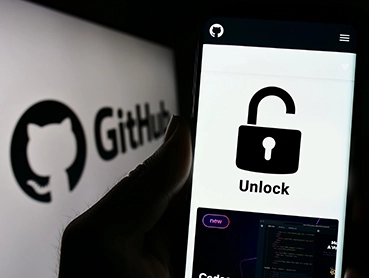How to reduce the risk of candidate ghosting in recruitment

Recruiting new talent is a critical process for any organization, but it can be frustrating and time-consuming when candidates ghost you. Unfortunately, candidate ghosting is becoming increasingly common, with candidates disappearing without any explanation or response during the hiring process. This can leave recruiters and hiring managers wondering what went wrong and struggling to fill open positions. In this article, we’ll explore what candidate ghosting is, why it’s a problem, and provide some strategies to reduce the risk of it happening in your recruitment process.
What is candidate ghosting, and why is it a problem?
Candidate ghosting has become an increasingly common problem in the recruitment industry. It refers to applicants who suddenly cease interacting with an employer during the recruiting process without providing an explanation or justification. Robert Half reports[1] that candidate ghosting is costing businesses more, with 39% of senior managers indicating that job hopefuls are more likely to stop communicating compared to two years ago. The consequences of candidate ghosting can be significant, with employers wondering what went wrong and struggling to fill open positions.
People define ghosting as the abrupt cut-off of all communication with no warning or explanation in the social world. Nonetheless, it has now entered the recruitment industry. A growing number of candidates are skipping out on scheduled job interviews, going silent after promising interactions, and even accepting jobs but becoming no-shows on their first day.
A recent study of small enterprises revealed an unexpectedly high incidence of ghosting. Over one-third (36%) of small employers reported hiring people who never showed up to work or stopped coming shortly after they started. Additionally, 37% of respondents to a survey conducted by the Canadian Federation of Business (CFIB) reported having had job candidates who stopped responding during the application or interview process in the past year.
Not only is candidate ghosting a frustrating waste of time for employers, but it is also a significant drain on their already limited resources. As Dan Kelly, president of the CFIB, notes, “Employers already have a tough time filling certain positions. Ghosting is a frustrating waste of their time and a big drain on their limited resources.”
Causes of candidate ghosting
Various factors can lead to job candidates ghosting employers[2], such as a lack of excitement about the role or confusion about job responsibilities. Communication is critical in building a positive affinity with candidates and encouraging them to remain engaged throughout the hiring process.
Clarity about job responsibilities is also essential, as candidates may apply for similar roles and must know each role’s specific requirements. Additionally, unaligned compensation or benefit expectations can prevent candidates from ghosting later. Early conversations about compensation help avoid this issue and allow candidates to remove themselves from the process if compensation isn’t aligned.
While employers can take steps to mitigate some of these external factors, personal circumstances can cause candidates to withdraw without explanation. These include changes in personal circumstances, such as a new family member or family emergency, or changes in professional events, such as a new role, internal promotion, or reorganization.
To reduce the chances of candidate ghosting, employers should prioritize clear communication, clarity around job responsibilities and expectations, and early conversations about compensation. By doing so, employers can build positive relationships with candidates and reduce the likelihood of ghosting.
Reducing the risk of candidate ghosting: Effective strategies
Employers are increasingly facing the problem of candidate ghosting. To minimize this risk, companies must implement effective hiring strategies prioritizing improved communication throughout the hiring process.
Transparency concerning compensation
Providing complete transparency from the beginning and being upfront about pay and salary rates can be highly effective. Employers should also ensure that they respond to candidates’ inquiries promptly and keep them informed about their hiring status.
Maintain a file of skilled workers
A sound strategy to follow up with candidates even if they are not currently suitable for a position. Employers can ask candidates if they would be interested in being considered for future roles and keep their applications on file. This is a wonderful method to maintain a steady supply of skilled workers while gaining a reputation as an open and considerate workplace.
Use Internet job boards
Employers can also leverage online talent marketplaces that vet candidates and equip employers with messaging and confirmation tools to minimize the number of interview no-shows. These tech-driven platforms match job candidates with employers, making the hiring process efficient and seamless.
Invest in online presence and branding
In addition to the things mentioned above, to minimize candidate ghosting, it is crucial to direct job applicants to your company’s website and social media platforms during the interview and offer process. Providing access to as much information as possible about your company can help keep candidates engaged and interested in the opportunity. Utilizing SMS or messaging to lead prospects to your social networking sites can also effectively showcase your company’s culture and values.
It is a common misconception that candidates only research companies on their websites. Instead, job seekers often turn to social media and review sites such as Glassdoor, LinkedIn, YouTube, and Twitter to Learn More about potential employers. By leveraging these platforms and sharing engaging content, you can remind candidates why your company is a great workplace. For example, consider including a link to a new hire testimonial on YouTube in a sample text message to give candidates a glimpse into your company’s onboarding process and recent successes. In addition, being transparent and proactive in communicating with job applicants can reduce the risk of candidate ghosting and attract top talent to your organization.
By implementing these strategies, employers can reduce the risk of candidate ghosting and improve their chances of attracting and retaining top talent.
Conclusion
In conclusion, it is essential to acknowledge that ghosting will likely persist as a trend, and employers must leverage new tools and resources to adapt to the changing landscape. For example, email funnels can help to keep candidates engaged, while partnering with staffing resources can help to fill staffing voids. Finally, employers should remember that candidates are likely to ghost them if they lack excitement about the role or need clarification about the job’s responsibilities.
Therefore, companies should create well-written job postings with explicit job scopes and responsibilities. Employers should also have a clear conversation about compensation early in the hiring process to ensure both parties are on the same page.
FAQs
Why are candidates ghosting employers?
Candidates ghosting employers could of various reasons, including multiple offers, discomfort, or lack of interest.
How do you overcome candidate ghosting recruiter?
As a recruiter, you can overcome candidate ghosting by taking steps like Communicating clearly and promptly, personalising outreach, and providing a positive candidate experience.
Why do candidates ghost interviews?
Candidates ghost interviews typically due to loss of interest, poor communication, or finding better opportunities. It could also be because of personal reasons like sickness or other unavoidable circumstances.
How do you deal with candidate ghosting an interview?
Although sad, but a candidate offered an interview must be a potential hire. So, if ghosted for an interview, it’s recommended to follow up respectfully, provide a clear timeline, and offer flexibility in scheduling.
What is candidate ghosting after job offer?
Candidate ghosting after a job offer means when a candidate accepts the job offer but never shows up on the job itself. In such a situation, HR should follow up, understand the issue and set expectations.
References
[1] https://www.prnewswire.com/news-releases/4-in-10-employers-report-a-rise-in-candidate-ghosting-robert-half-research-shows-301483445.html
[2] https://www.roberthalf.com/blog/job-market/candidate-ghosting
Other Resources
- https://www.talentroo.com/blog/8-tips-to-stop-candidates-ghosting-you
- https://www.thesafetymag.com/ca/news/features/why-is-ghosting-a-problem-among-new-hires/435217
- https://www.bbc.com/worklife/article/20220311-why-workers-and-employers-are-ghosting-each-other
- https://www.linkedin.com/pulse/how-reduce-candidate-ghosting-katrina-collier/





